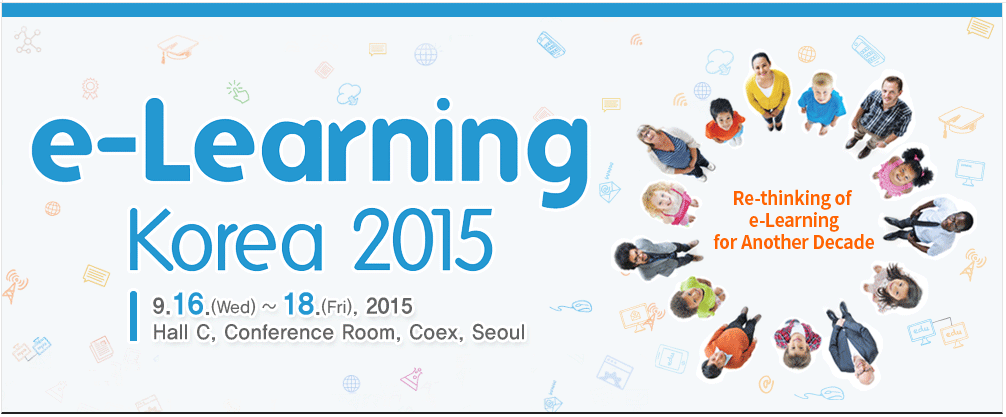News

‘Re-thinking of e-Learning For Another Decade’ in Korea
From the 16th to the 18th Fundación Ceibal will be participating in the coming e-Learning Korea 2015 Conference ‘Re-thinking of e-Learning For Another Decade’ in Seoul, Korea. The event is hosted by the Korean Ministry of Education, the Ministry of Trade, Industry & Energy, the Ministry of Science, ICT and Future Planning and it is organized by Korea Education Frontier Association (KEFA), the Korea e-Learning Industry Association (KeLIA) and the Korea National Open University (KNOU).
Mariana Montaldo and Cristóbal Cobo will participate as keynotes. Toghether they will be presenting the Ceibal and Universidad ORT experience in MOOCs and programming for kids (see programme). Their talk is entitled “How to increase the completion rate in MOOCs?: Lessons learned from the Uruguay experience“.
Abstract:
One of the main drawback of MOOCs (Massive Open Online Course) worldwide is the high level of student dropout. In Uruguay an inter-institutional online learning initiative developed novel ways of providing MOOCs with higher levels of completion rates. Plan Ceibal (the one laptop per child and per teacher for every public school and high school national plan) teamed with Universidad ORT to develop and implement a MOOC designed for 12-17 years old students.
Two online programmes focused on learning to programme in Scratch (video games and animations) were organized in 2013 and 2014. These courses aimed, not only at building basic programmes with this tool, but also at developing proficiency in comparing, assessing and reviewing programmes applying critical thinking. This MOOCs enrolled either students from formal education (youngsters from secondary education or high school), but also teenagers who registered driven by self-motivation. These hybrid communities of learners allowed us to conduct comparative studies in order to better understand their profile and performance during the course. Among the key features of this course, flexibility, promoting student’s systematic thinking through a simple and intuitive tool like Scratch; enabling to integrate student’s own experiences into projects, fostering creativity to solve problems and to explore the tool. The materials provided were designed in an attractive manner for the young audience, considering possible gender differences, prior knowledge, and social contexts. The average (2013 and 2014) completion rate of these MOOCs was 15,2%.
What were the key aspects of these experiences? How did the time variable affected the development of the course? What kind of materials were available in this course? Was the subject relevant for the success of the MOOC? How were organized the sub-groups of participants? What lessons can be drawn out of this initiative? Some of the lessons learned from these experiences are currently being incorporated in the course Code Yourself! An Introduction to Programming in Coursera. This course is jointly offered by Universidad ORT Uruguay and The University of Edinburgh, Scotland.
Image source: commons.wikimedia.org

